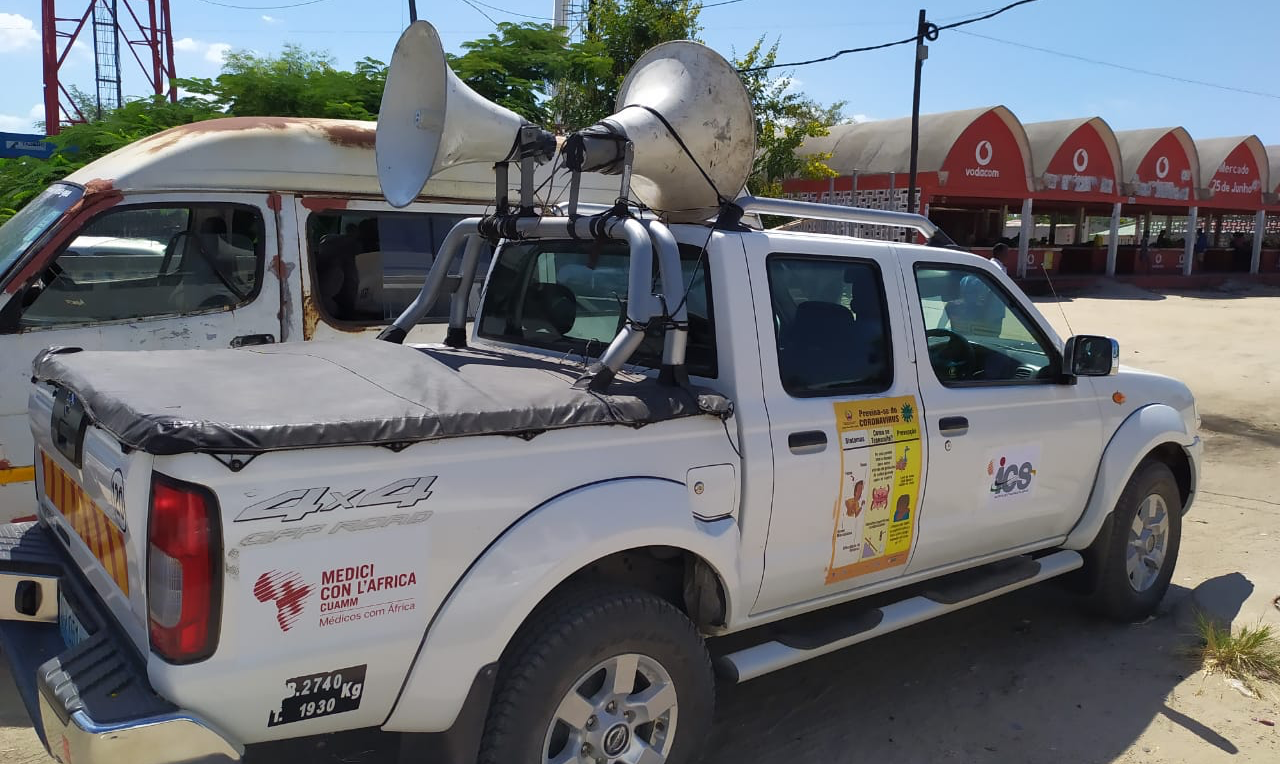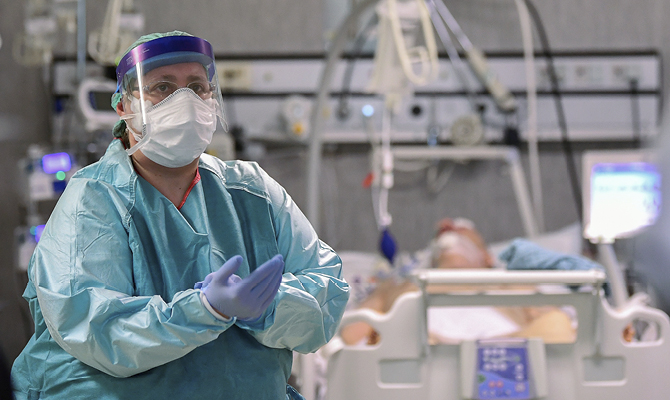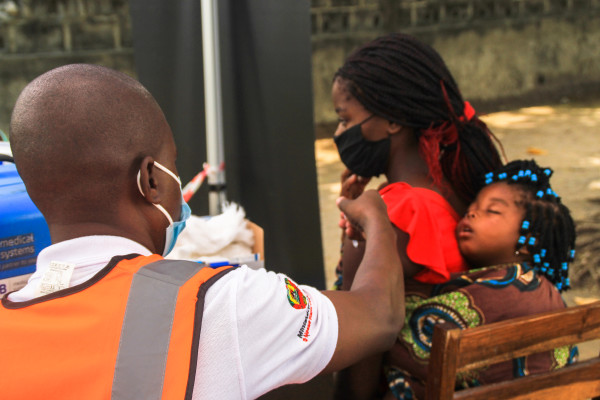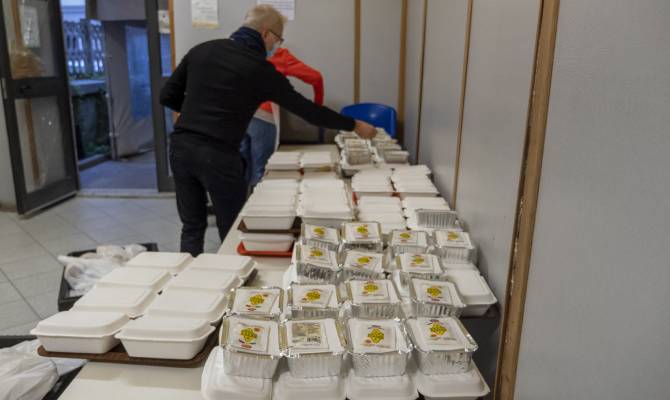In Mozambique Covid-19 victims aren’t reported yet, but there are 41 confirmed cases out of a thousand tested suspects. Very low numbers for a country of thirty million inhabitants, whose capital city, Maputo, the most severely hit area at the moment, is not far from the border with South Africa: the most affected country to the south of the Sahara desert, with over 3,600 notified cases. With just one lab which can confirm virus positivity at a national level and the awareness that half the cases are asymptomatic, it’s highly likely that the numbers don’t represent the real circulation of the virus in the Country.
Doctors with Africa CUAMM has been working for over one month and a half in close collaboration with the Mozambique ministry of health, both at a national and provincial level, joining technical meetings to organize a response to coronavirus that puts prevention first, as Laura Nollino, endocrinologist who arrived in Mozambique one year ago to cure diabetes, explains:
«We have a time advantage that we have to use in the best way in order not to be overwhelmed by the epidemic. We’re trying to use it to look for containment measures of the virus and protection of the healthcare staff, who don’t have to get sick. Here, too, maybe more than in Italy, it’s difficult to find face masks and other simple but essential tools to prevent the spread. The minister of health has declared that there are 34 ventilators in the country, they’re important but we don’t believe that they’re the solution: there could be even more, but doctors who can use them would be missing. In the Country there’s less than one doctor every 10,000 inhabitants and I wouldn’t be able to use a ventilator, because I’m not a resuscitator specialist. That’s why prevention and training are the key to avoid a disaster».
Giovanna De Meneghi has been in Mozambique for two years, after living in post-Ebola Sierra Leone and as country manager she’s responsible for the coordination of project which are still active in the provinces of Tete, Sofala and Cabo Delgado, in addition to the support to the district healthcare activities of Maputo, Zambezia and Nampula. Like the other colleagues she works from home, limiting social contacts and outings:
«It’s very strange and a little tiresome. Last first of April the government declared, for the first time since the peace of 1992, the state of emergency: movements are limited and in public places, or when it’s not possible to assure the distance of one and a half metre, everyone must wear face masks aka mascaras caseiras of capulana made according to the indications of the WHO. One year ago we were in the middle of the management of the emergency linked to the cyclones Idai in Sofala and Kenneth in Cabo Delgado, which had destroyed houses, healthcare centers and hospitals, in addition to causing more than 600 dead people and many displaced people. Now we’re in the middle of a global emergency: there years are intense for Mozambique».
The state of emergency hasn’t currently resulted in a total lockdown of the activities, the same as in other African countries, which have imposed lockdowns on business activities as well. Edoardo Occa, anthropologist and manager of the community activities of Doctors withAfrica Cuamm, explains:
«An African city lives off informal, street economy. Preventing people from selling and meeting on the street is a problematic choice, which may have an immediate impact of economic revenues of many families who take life one day at a time».
In the communities a network of 500 operators
Edoardo Occa joins on behalf of Doctors with Africa CUAMM the technical meetings on the topic of community health:
«As CUAMM – he explains – we can count on a network of 500 operators who already work with us in their original communities to fight HIV and favour mother andchild health».
This precious network was created to spread awareness-raising messages on coronavirus, working in small groups to fulfil social distancing. The virus doesn’t just change social habits, but also the approach to the community. Occa continues:
«While before the operators went from home to home to meet people, today we’ve had to change strategy, to limit contacts.. We’ve made radio commercials which are broadcasted in seven different dialects, to reach everyone, and we’ve equipped our cars with loud speakers, driving around the districs of Beira, Tete or Quelimane spreading the recommendations on Covid19. At Cabo Delgado a positive collaboration was established: the Islamic council of the city has allowed us to broadcast the messages on the loudspeakers of the minarets».
In addition to the fight against the fake news on the virus and the preparation of new replacement practices for the rituals linked to birth and death, many other habits need to be reviewed, in Mozambique like the rest of the world. For example we’re working, together with the ministry of health, on the creation of the position of the “epidemiological sentinel” – a community operator who will be a reference point for the village and will filter suspect cases and healthcare facilities, directing to the hospital only those people who are really at risk and following people at home, so that with the movements between villages and healthcare facilities the virus doesn’t spread excessively.
«Many of these operators are just volunteers – Edoardo Occa tells – and carry out these new jobs, which often expose them to risks, with an admirable spirit of service for the community. We have to convince people to change habits: it’s hard, for all. In many cases the virus will call into question consolidated power systems in the communities, but people are changing their habits and having many motivated and influential operators by our side for us is essential right now».
Italy seen from Mozambique
«Always thinking about the post-cyclone situation of one year ago – Giovanna De Meneghi tells – it comes to my mind how Italy promptly helped us, sending aid and economic support. Now, at least as concerns family and friends, we have to help to understand how to move, how to live in a state of emergency. As NGO workers we’re more used to situations of this kind: uncertainty and suspension in fragile settings are frequent. Now everyone worldwide has to get used to a new normality».
«As a doctor – Laura Nollino admits – when the epidemic in Italy was at its peak I seriously thought to return to Italy, to make myself useful. This emergency has affected us all: our families are often in Lombardy and Veneto, it wasn’t easy to decide to stay. Then I understood that it would have been equally useful to remain here, to prepare to a wave which could arrive. And then the virus is not the only problem: we’ve redesigned the projects to also tackle the virus, my specialization was diabetes and patients continue to need cures, like HIV-positive people, or pregnant women who must deliver at the hospital. It’s also right to remain for them, in addition to the healthcare staff we work with, they are essential and we have to train them and protect them from the virus as much as possible».





